Also: Climate Change Study in Injustice | Indigenous Knowledge | Mainstreaming
November
Community Based Adaptation to Climate Change Newsletter
Center for Sustainable Development
THIS MONTH’S NEWS
| 1. 300 Hands-On Field Activities for Community Based Adaptation Projects: Updated | |
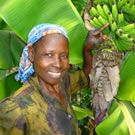 |
I am announcing an updated compilation of Community Based Adaptation Field Activities—complete with links to source materials and technical information. This collection of 300 CBA field activities began as a resource for our CBA online students. |
|
However, as it grew, we decided that it was important to make it more broadly available to CBA development practitioners. Here are how the activities are organized:
1. Agriculture.
2. Small island developing states. 3. Emergency preparedness and disaster risk reduction. 4. Energy. 5. Livelihood. 6. Health & sanitation. 7. CBA project design. 8. CBA participatory inclusion. 9. Long-term investments. 10. General resources. |
|
| 2. Is Climate Change Affecting Farmers in Your Country? It is in Guatemala. | |
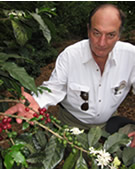 |
Each week I hear about subsistence farmers affected by extended drought, rainy seasons beginning late and ending early, too much rain at the wrong time, and extreme weather events destroying crops. But a trip to a coffee farm in Guatemala brought this reality home to me.
|
|
My farmer friend Sergio told me that in the past, it rained from May 15 until October 15 every year. For the past few years, the rains have been less predictable and when it does rain—the the rains come with a high intensity and an excess of water—a perfect formula for a fungus locally called “Ojo de Gallo” which causes the coffee plants to drop both leaves and fruit. 2010 coffee production in Guatemala was down 20% because of this fungus.
Sergio’s farm has recently experienced two major hurricanes: Stan and Agatha. Agatha, in 2010, dumped 50 inches of rain on his farm in a 36 hour period.
|
|
| 3. Mainstreaming Climate Change Adaptation: A Guide for Practitioners | |
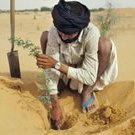 |
Climate change adaptation is an area of growing concern for many developing countries. Increasingly, countries are coming to realize that, in the long term, climate change adaptation needs to be supported by an integrated, cross-cutting approach.
|
| We are pleased to draw your attention to a new Guide released by UNDP-UNEP. This guide provides practical, step-by-step guidance on how governments and other national actors can mainstream climate change adaptation into national development planning as part of broader mainstreaming efforts. | |
| 4. Climate Change Risk & Vulnerability in a Remote Tanzanian Village | |
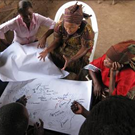 |
Chris Enns & Catalina Gheorghe are doing a community-based adaptation to climate change project in Wagete village, Tanzania, impacting 4,000 villagers. Their project is a ‘mainstreamed’ project—they are incorporating adaptation to climate change activities into a traditional rural development project. |
|
They have a healthcare & education component— and for adaptation—a soil and water conservation program, and a farmer extension program. Detailed project outline & great photos at link. They’ve been determining their risks and vulnerabilities to climate change by combining scientific data with local community knowledge. Chris and the community developed a list of local resources, hazard maps, a seasonal calendar & a historical timeline.
|
|
| 5. CC Study in Injustice: 10 Million Additional African Children Malnourished by 2050 | |
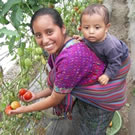 |
The World Food Program estimate that globally, 10-20 percent more people will be at risk of hunger by 2050 than would be without climate change. Of these, almost all will be in developing countries, with 65 percent expected to be in Africa. This has severe implications for nutrition, particularly for children.
|
|
In sub-Saharan Africa, it is estimated that 10 million more children will be malnourished as a result of climate change.
|
|
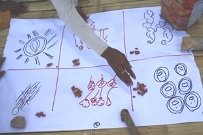 |
Prem Goolaup, of the island state of Mauritius in the Indian Ocean, has been developing a community based adaptation project for the past eight months. The adaptation components of his project include a Soil Restoration and Water Management Program.
|
|
He’s using a participatory mapping technique to not only learn more about the specific challenges the farmers face, but by including farmers in the research and drawing of the map, they are better understanding their current challenges and also developing a sense of ownership for the project.
|
|
| 7. Do you think that local/indigenous knowledge should be incorporated into adaptation to climate change projects? | |
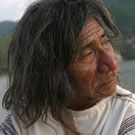 |
Last week, Stephen Oluoch met again with his target community to gain a better understanding of their knowledge of climate change, challenges that they are experiencing attributable to climate change, and activities that they have begun on their own using indigenous knowledge to adapt to their changing situation. |
|
Here is one list that resulted from this participatory exercise: Vulnerability Matrix 1: What is a prioritization of the community’s greatest hazards they face?
|
|
We’ve trained development professionals from 500 organizations in 153 countries to develop projects impacting over 400,000 people. Student projects have utilized 270 different kinds of solution-oriented activities to address community need. Scan the list to see which would work best for your project.
We look forward to working with you in our training programs.
Sincerely,
Tim Magee, Executive Director
Tim Magee is the author of A Field Guide to Community Based Adaptation published by Routledge, Oxford, England.
Like us: CSDi Facebook.
Learn more about design and implementing Community Based Development Projects.
Learn more about design and implementing Community Based Development Projects.
Would you like to subscribe to this newsletter?
If you have a question don’t hesitate to contact us at: Online.Learning@csd-i.org.
The Center for Sustainable Development specializes in providing sound, evidence-based information, tools and training for humanitarian development professionals worldwide. CSDi is a 501(c)(3) nonprofit organization.
